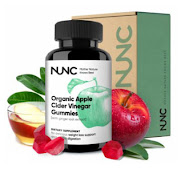TTABlog Test: Are Supplements and Cosmetics Related for Section 2(d) Purposes?
The USPTO refused to register the proposed mark NUNC for "Dietary supplements and nutritional supplements for promoting nutrition and health, excluding tablets and powdered mixes used to make beverages or drinks and excluding formulations for beauty enhancement" (emphasis supplied), finding confusion likely with the mark NUNC in slightly stylized form, for "Cosmetics and cosmetic preparations; aromatic oils; air fragrancing preparations; fragrances and perfumery; skin soap; dentifrice." There was no question that the marks are confusingly similar, but what about the goods? Are they related? How do you think this came out? In re Your Gummy Vitamins LLC, Serial No. 90007282 (March 17, 2022) [not precedential] (Opinion by Judge George C. Pologeorgis).
Examining Attorney Khanh M. Le relied on "Internet evidence from approximately eleven online retailer websites demonstrating that a single entity commonly promotes and provides Applicant’s goods and Registrant’s goods under the same mark." Applicant Your Gummy contended that its identified goods are sufficiently narrow and different to avoid confusion, pointing to its exclusion of beauty formulations from the scope of its nutritional and dietary supplements.
Applicant’s argument is unavailing. *** [T]he parties’ respective goods do not need to be identical in order to find a likelihood of confusion. Instead, they just need to be related in some manner such that if offered under similar marks may give rise to the mistaken belief that they originate from the same source. The record before us sufficiently demonstrates that Applicant’s and Registrant’s goods are the type offered by a single entity under the same mark.
Your Gummy next argued that the goods in the cited registration are not sold in the United States, but that was an impermissible collateral attack on the cited registration. The pointed out that "an abandonment or nonuse challenge would be appropriate in a cancellation proceeding, but it is not appropriate or permissible in this ex parte proceeding."
Your Gummy also maintained that the trade channels are different because registrant is a Japanese company whose business focuses on education, senior care services, and beauty salons, but only in Japan. The Board was unimpressed. "[B]ecause there are no limitations or restrictions in the trade channels or classes of purchasers of either Applicant’s or Registrant’s identification of goods, we must presume that the parties’ respective goods are marketed in all normal trade channels for those goods and to all normal classes of purchasers for such goods, regardless of what any extrinsic evidence might show to be the actual trade channels and purchasers for the goods."
And so the Board affirmed the refusal.
Read comments and post your comment here.
TTABlogger comment: WYHA?
Text Copyright John L. Welch 2022.



6 Comments:
Yet another example demonstrating that merely adding a phrase excluding the cited registrant's goods from the applicant's ID is a pointless endeavor in an ex parte proceeding. Speaking as a former examiner, it is already presumed that an applicant doesn't offer the registrant's goods if they don't appear in the application, and, in any event, consumers don't know what an applicant's ID says when they are out shopping in the "real world"! Therefore, if an examiner provides evidence that a single entity provides both the goods of the applicant and the registrant, attack the quality and/or relevancy of the examiner's evidence. If your only response is try to stick in a limitation like this, you're probably going to lose.
If the applicant was correctly contending abandonment or non-use they should have filed either a cancellation or a re-examination, suspended their action, and then they would have ended up getting their mark!
It would be good to know the online retailers. If Amazon, Target, Walmart-type online stores, that is one thing. If they are online retailers with limited product type, that is another.
What if the opposer appeals to the Federal Circuit and the court follows its 2021 Brooklyn Beer precent? Wouldn’t the court refuse to hear the appeal on the merits because the goods are not competitive? The Federal Circuit in Brooklyn Beer held that it would not hear the appeal of opposer because of a failure to show Article III standing. The court believed that opposer could not be injured by a mark used on a non-competitive product.
Because this is an ex parte case, I'm not sure the Article III Brooklyn Beer issue would come up on appeal. The PTO gets to defend its decision no matter whether the registrant's and applicant's goods are competitive. But if this were an opposition, Professor McCarthy would have an interesting point!
Good point, anonymous.
Post a Comment
<< Home